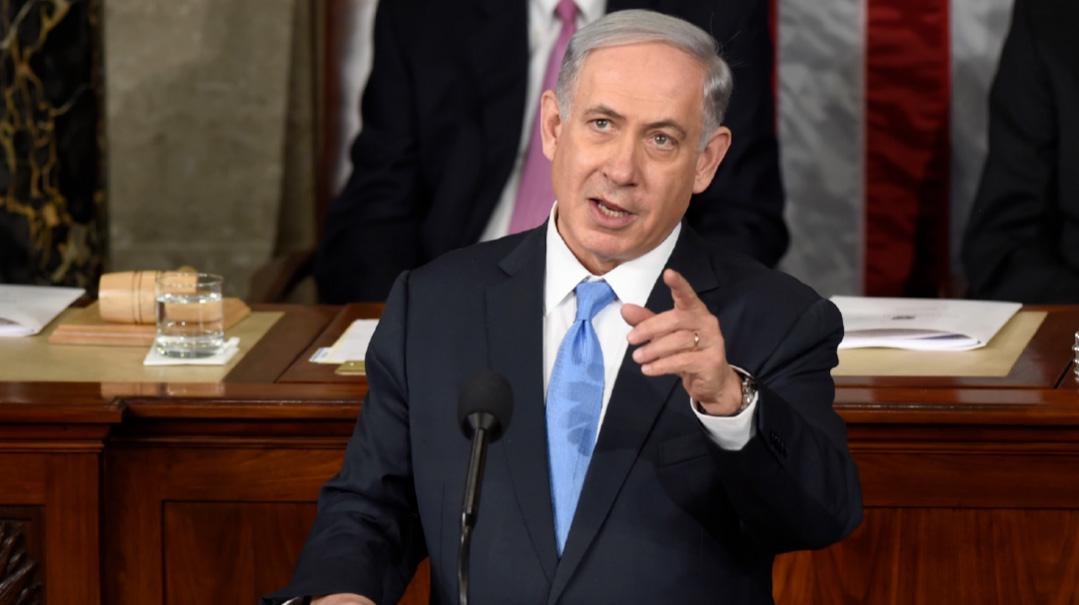Senator Ernst to MBS: Recognize Israel

Israel-Saudi breakthrough needs more American muscle

Photos: AP Images
E
arly warning systems against incoming rocket attacks save lives. Ask Israelis whose homes border the Gaza Strip, and they will agree that sirens warning of an impending Hamas strike enable them to go about their daily activities and still scurry for shelter when necessary.
Every US president since Bill Clinton has tried to create an integrated air and missile defense system for all US allies in the Middle East. Most Arab countries have spurned those efforts, either because they prefer making one-on-one deals with the US, or because they object to open cooperation with Israel.
The Abraham Accords changed the paradigm, with Arab nations now more willing to deal with Israel, especially to counter Iran’s growing regional belligerence. So even if President Biden failed to make much progress on his recent Middle East swing-and-miss, a bipartisan group within the US Congress is shaking the cobwebs off these old defense plans.
The DEFEND Act of 2022 would encourage nine Arab nations, alongside Israel, to build joint air defenses against Iran, complete with early warning posts.
Senator Joni Ernst, an Iowa Republican who serves on the Senate Armed Services Committee and is co-chair of the Senate Abraham Accords Caucus, is leading the bipartisan effort in the Senate, along with New Jersey Democratic senator Cory Booker.
While Ernst commended Biden for re-engaging with Saudi Arabia, she says the Saudis need the kind of push that only Americans can provide.
“We want to see Saudi Arabia recognize Israel,” Senator Ernst said on a Zoom call last Thursday organized by JINSA, the Jewish Institute for National Security of America. To make that happen, Senator Ernst says the Biden administration must get its priorities straight.
“Everyone knows that there are human rights abuses in Saudi Arabia,” she said. “There are certain areas where we disagree adamantly with Saudi Arabia and their leadership. However, we do have a common adversary — Iran — and we need to work together to make sure that Saudi Arabia and Israel are moving in the right direction.”
Senator Ernst gained national prominence in 2015, early in her first term, when Republicans tapped her to deliver the nationally televised rebuttal to President Obama’s 2015 State of the Union message. Donald Trump briefly considered Ernst as his running mate in 2016. JINSA is a Washington-DC-based think tank that educates national security decision-makers on US strategic interests in the Middle East, and helped develop the DEFEND Act.
Iran is most feared for its efforts to manufacture nuclear weapons, but it uses military force to destabilize the Middle East every day. According to JINSA, Iran’s regional proxies fired some 740 projectiles at US personnel and Arab nations in 2021 and are on pace to surpass that in 2022, having fired more than 400 projectiles in the last six months.
The Biden administration has pinned its hopes on diplomacy, including a return to the nuclear deal Obama negotiated with the ayatollahs — something Ernst contends is a waste of time.
“I don’t know what the president is thinking and why he keeps proceeding,” she said. “It’s been clear for some time now that Iran has no intention of returning to any sort of agreement that would hamper them. They are within a hair’s breadth of having nuclear capabilities. So why are they going to reverse course?
Ernst answered her rhetorical question: “Iran is just a bad actor, and they are not going to change, no matter how much Joe Biden pursues them.”
While adding that she understands efforts to close gaps between Israel and Saudi Arabia, and the rest of the Arab world will take more “time and intense collaboration,” she insists that America can and must facilitate the process. “[Foreign leaders] are always much more confident when Americans are engaged in negotiations and helping coordinate activities, no matter where the region, no matter what the issue.”
(Originally featured in Mishpacha, Issue 921)
Oops! We could not locate your form.







